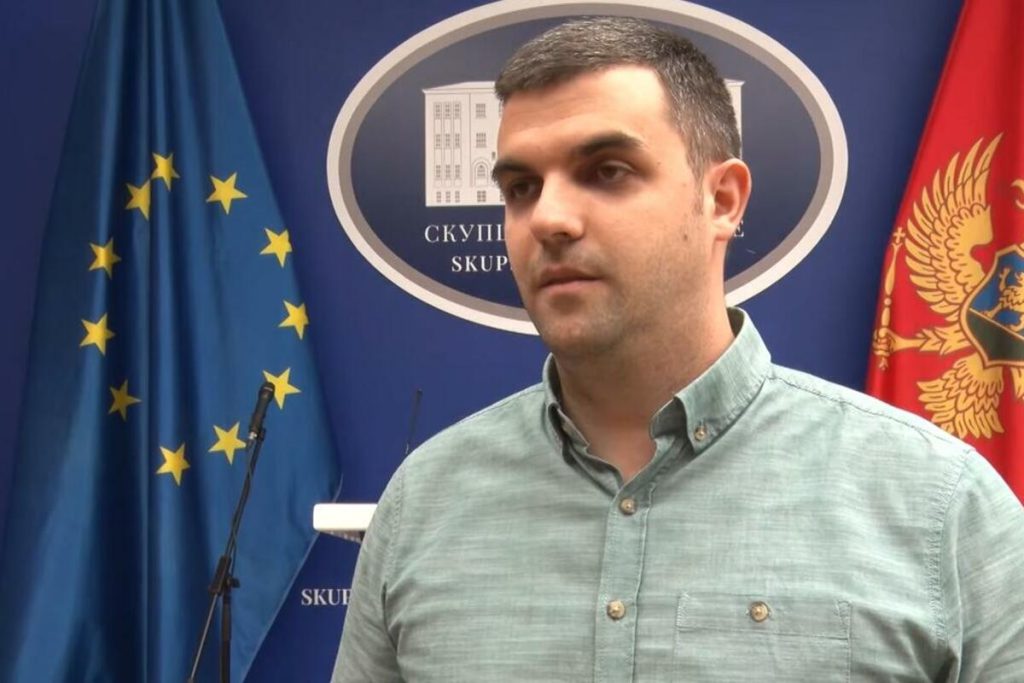Listen to the article
Montenegrin Politicians Share Their First Job Experiences, Emphasizing Value of Early Work
How much do you remember about your first job? For many political figures in Montenegro, those early employment experiences—often unglamorous but formative—helped shape their work ethic and perspective on professional life.
In recent interviews, several members of Montenegro’s parliament reflected on their first jobs, revealing the humble beginnings that preceded their political careers.
Bogdan Božović, a representative from the Socialist People’s Party (SNP), earned his first income distributing campaign materials and working in a warehouse. “Those were daily allowances distributed based on completed work, which was very important to me as a student,” Božović explained. “I used the money for everyday things and going out.”
Božović’s early career path included stints at Kips warehouses and in betting shops while balancing his university studies. “It was very difficult to manage university obligations alongside work, especially considering I worked Saturdays, often on second shift,” he recalled.
Despite the challenges of working while studying, Božović considers these experiences invaluable. “I only regret not working more during that period to gain additional experience and knowledge,” he reflected. “This kind of experience is useful for later in life, so I would recommend young people find seasonal jobs to see what it’s like earning their own pocket money.”
For Nikola Zirojević, another parliamentarian, his first professional experiences came directly through politics. “At about 15-16 years old, during my studies, I started working professionally in a political party,” Zirojević said. “I became a technical secretary in parliament, in the Committee, and eventually the spokesperson for the party.”
His education in electrical engineering took a backseat to his political work. Zirojević recalled earning between 500 and 600 euros at the time—a substantial amount for a student still receiving financial support from home. “That money mostly went to travel and going out,” he added.
Unlike Božović, Zirojević didn’t have early employment opportunities. “Unfortunately, I didn’t have the chance to work in the summer as a high school student because I was the only son in a family that could provide for me,” he explained.
Now in a position of influence, Zirojević encourages young Montenegrins to be proactive about their careers. “I tell young people to start earning money for themselves as early as possible because it’s an incredible feeling when you don’t need to ask anyone for it,” he advised. “Don’t chase government jobs—young people should explore the private sector, engage in innovation, and become driving forces in society.”
The testimonies from these politicians highlight a broader trend in Montenegro’s employment landscape. While the country has faced economic challenges in recent years, with youth unemployment remaining a significant concern, these personal stories emphasize the importance of early work experience regardless of the economic climate.
Labor market experts note that early employment, even in positions unrelated to one’s eventual career path, provides valuable soft skills including time management, responsibility, and interpersonal communication—qualities that benefit professionals in any field, including politics.
Whether stocking warehouse shelves, distributing promotional materials, or working in political offices, these first jobs left lasting impressions on Montenegro’s current political figures. Their experiences underscore a universal truth about early employment: the value extends far beyond the paycheck, teaching crucial lessons about work ethic, responsibility, and self-reliance that inform professional identities for years to come.
As Montenegro continues developing its economy and creating new opportunities for young workers, these politicians’ reflections serve as reminders that humble beginnings often lay the foundation for successful careers—in politics and beyond.
Verify This Yourself
Use these professional tools to fact-check and investigate claims independently
Reverse Image Search
Check if this image has been used elsewhere or in different contexts
Ask Our AI About This Claim
Get instant answers with web-powered AI analysis
Related Fact-Checks
See what other fact-checkers have said about similar claims
Want More Verification Tools?
Access our full suite of professional disinformation monitoring and investigation tools




8 Comments
Working second shift in a warehouse while also attending university full-time – that takes real dedication and determination. These types of early jobs build important skills that can serve politicians well in their later careers.
Earning a daily allowance for distributing campaign materials and working in warehouses – that’s a grounded way to get your start in the professional world. Helps keep you connected to the everyday challenges regular people face.
Interesting to hear how these Montenegrin politicians started out in more humble roles before entering politics. It highlights the value of early work experience, even if the jobs weren’t glamorous. Helps build a strong work ethic.
Managing university and part-time work at the same time – that’s no easy feat. But those types of early experiences build resilience and time management skills that serve politicians well in their careers.
It’s refreshing to hear politicians talk about their first jobs in a genuine way, without trying to gloss over the less glamorous aspects. Acknowledging those humble beginnings shows real humility and perspective.
It’s admirable that these politicians are willing to reflect openly on their humble beginnings and early work experiences. Providing that transparency and recognizing the value of those formative jobs is a sign of authenticity.
Distributing campaign materials and working in warehouses – sounds like good grounding for a future political career. Getting that real-world experience early on, even if the jobs weren’t the most exciting, can really shape your perspective.
Balancing university studies with part-time work like at betting shops and warehouses is not an easy feat. But it’s great to see these politicians acknowledge the importance of those early jobs and the lessons they learned from them.